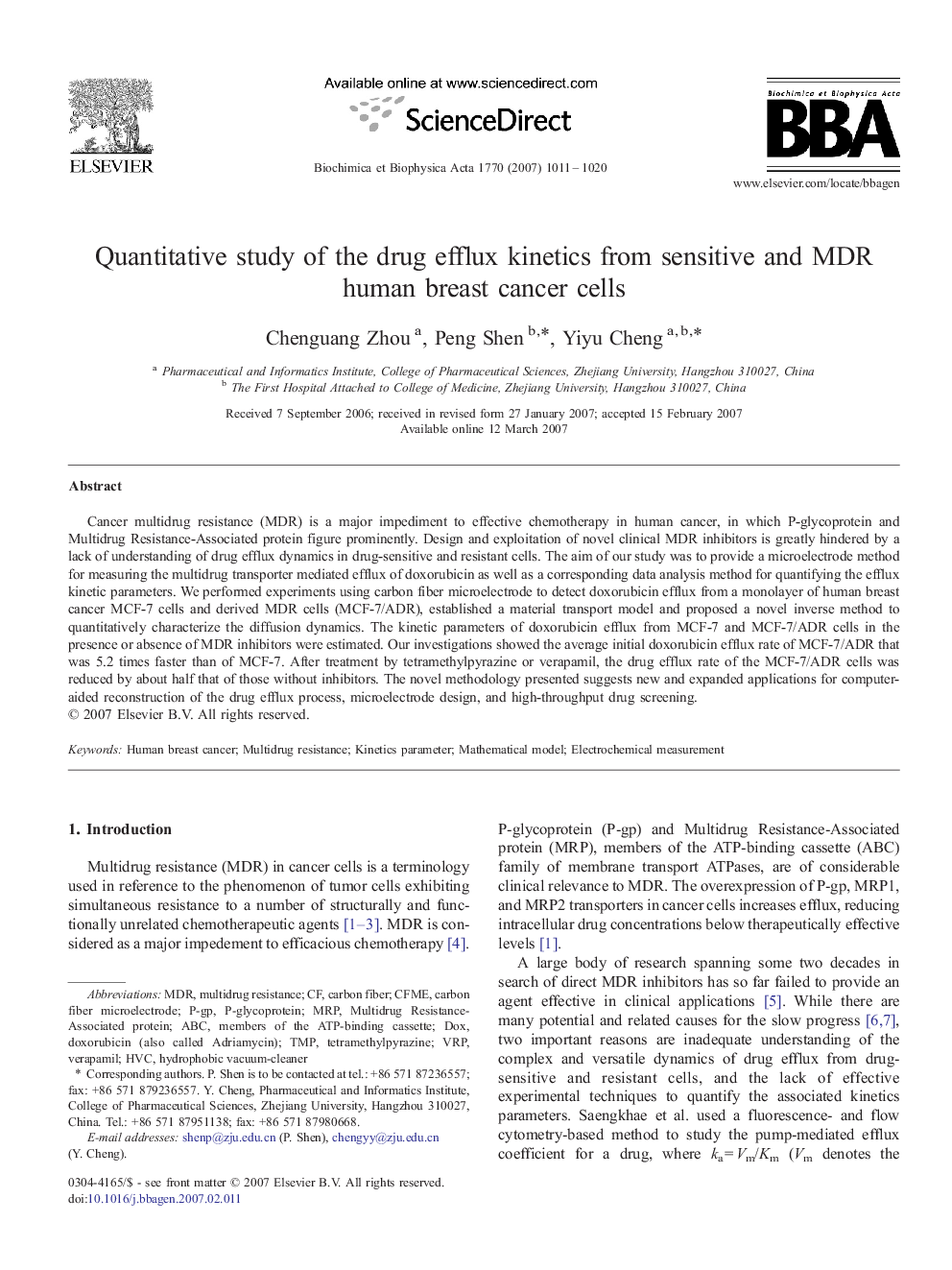| Article ID | Journal | Published Year | Pages | File Type |
|---|---|---|---|---|
| 1948612 | Biochimica et Biophysica Acta (BBA) - General Subjects | 2007 | 10 Pages |
Cancer multidrug resistance (MDR) is a major impediment to effective chemotherapy in human cancer, in which P-glycoprotein and Multidrug Resistance-Associated protein figure prominently. Design and exploitation of novel clinical MDR inhibitors is greatly hindered by a lack of understanding of drug efflux dynamics in drug-sensitive and resistant cells. The aim of our study was to provide a microelectrode method for measuring the multidrug transporter mediated efflux of doxorubicin as well as a corresponding data analysis method for quantifying the efflux kinetic parameters. We performed experiments using carbon fiber microelectrode to detect doxorubicin efflux from a monolayer of human breast cancer MCF-7 cells and derived MDR cells (MCF-7/ADR), established a material transport model and proposed a novel inverse method to quantitatively characterize the diffusion dynamics. The kinetic parameters of doxorubicin efflux from MCF-7 and MCF-7/ADR cells in the presence or absence of MDR inhibitors were estimated. Our investigations showed the average initial doxorubicin efflux rate of MCF-7/ADR that was 5.2 times faster than of MCF-7. After treatment by tetramethylpyrazine or verapamil, the drug efflux rate of the MCF-7/ADR cells was reduced by about half that of those without inhibitors. The novel methodology presented suggests new and expanded applications for computer-aided reconstruction of the drug efflux process, microelectrode design, and high-throughput drug screening.
